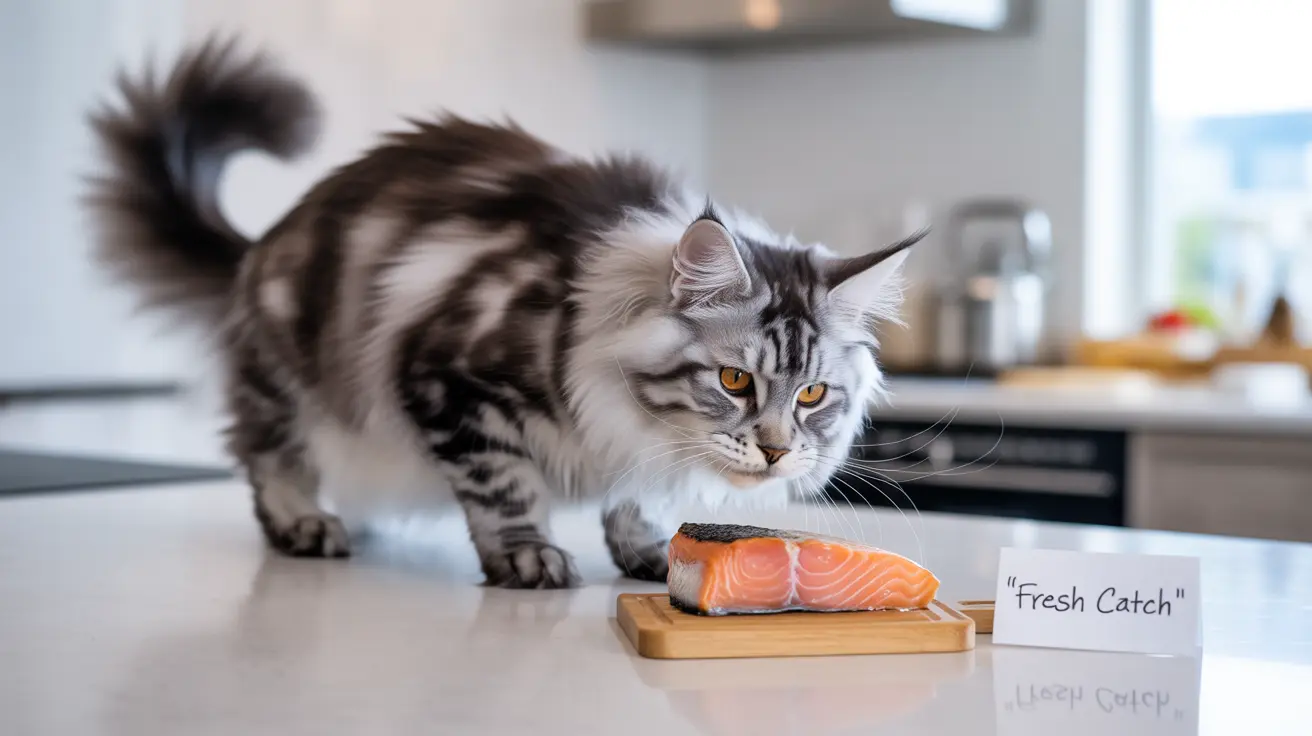Understanding the Nutritional Profile of Smoked Salmon
Smoked salmon contains several beneficial nutrients that could potentially support your cat's health. It's rich in high-quality protein and omega-3 fatty acids, which can promote healthy skin, coat, and brain function. The fish also provides essential vitamins like B12 and D, along with important minerals such as calcium.
However, these nutritional benefits come with significant caveats that every cat owner should consider before sharing this treat with their pet.
Key Health Risks of Smoked Salmon for Cats
Sodium Content Concerns
The most significant risk of smoked salmon for cats is its extremely high sodium content. Cats have a much lower tolerance for salt than humans, and excessive sodium intake can lead to serious health issues, including:
- Severe dehydration
- Increased blood pressure
- Potential kidney damage
- Sodium ion poisoning
Processing and Preparation Risks
The smoking process itself introduces several concerns:
- Addition of potentially harmful preservatives
- Presence of carcinogenic compounds from smoking
- Risk of bacterial contamination
- Possible inclusion of toxic seasonings like garlic or onion powder
Safe Feeding Guidelines
If you decide to offer smoked salmon to your cat, follow these essential guidelines:
- Limit portions to tiny amounts (less than 1 cubic inch)
- Offer it only as an occasional treat
- Check ingredients for harmful additives
- Monitor your cat for adverse reactions
- Consider safer alternatives like plain cooked salmon
Healthier Alternatives for Your Cat
Instead of smoked salmon, consider these safer options:
- Plain, cooked salmon without seasonings
- Commercial cat treats containing salmon
- Veterinary-approved fish-based cat food
- Fresh, properly cooked white fish
Frequently Asked Questions
Can cats safely eat smoked salmon, and if so, how much is appropriate?
While cats can technically eat small amounts of smoked salmon, it's not recommended as a regular treat. If offered, limit portions to tiny pieces (smaller than a cubic inch) on rare occasions.
What are the health risks of feeding smoked salmon to cats?
The main risks include excessive sodium intake, potential toxicity from additives or seasonings, exposure to harmful compounds from the smoking process, and possible bacterial contamination.
How should salmon be prepared for cats to ensure it is safe and healthy?
The safest way to feed salmon to cats is to cook it plainly - either baked, steamed, or poached without any seasonings, oils, or additives.
What signs indicate a cat may be having an adverse reaction to smoked salmon?
Watch for symptoms like excessive thirst, vomiting, diarrhea, lethargy, difficulty breathing, or seizures. If any of these occur, contact your veterinarian immediately.
Are there safer fish or commercial cat food alternatives to smoked salmon for my cat?
Yes, better alternatives include specially formulated fish-based cat foods, plain cooked salmon or white fish, and commercial cat treats designed specifically for felines.
Conclusion
While smoked salmon isn't inherently toxic to cats, its high sodium content and potential risks make it a less-than-ideal treat choice. Instead, focus on providing your cat with a balanced, veterinary-approved diet, and choose safer alternatives when you want to offer a special treat.
Always consult with your veterinarian before introducing any new foods to your cat's diet, especially if your pet has existing health conditions or dietary restrictions.






